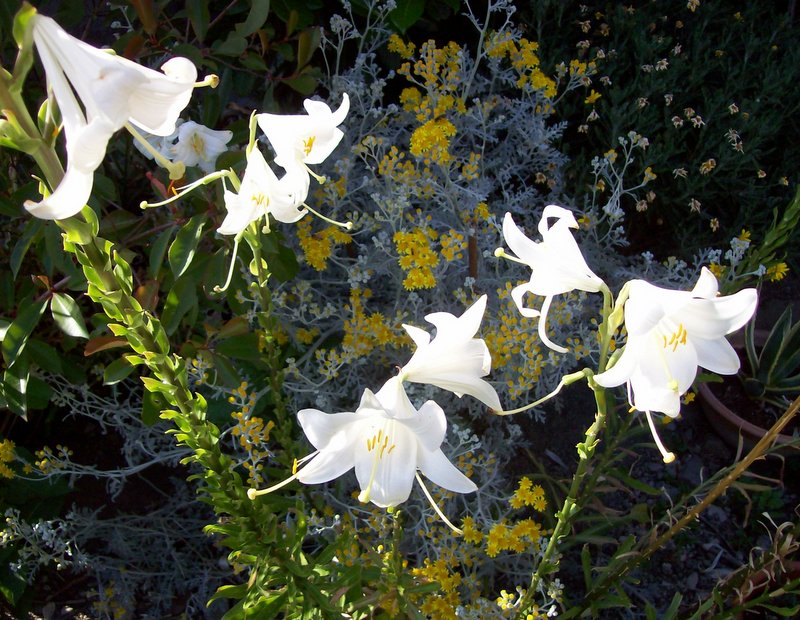Gli Odori Dell’Estate Posted by Geoff on Jun 14, 2017 in Uncategorized
It’s hot, we leave the windows ajar day and night to keep the house fresh. Gli odori dell’estate (the smells of summer) flow into the house …
Profumo = Scent
Just outside the kitchen door is a tall bushy gelsomino (jasmin). It gives off un profumo inebriante (an inebriating scent), especially in the evening.
Il profumo dei gigli (the scent of the lilies) è più delicato (is more delicate). You have to get close to them to appreciate it.
Aroma = Aroma
Some plants need to be touched before they release il loro aroma (their aroma), such as la lavanda (the lavender) and il timo (the thyme). L’aroma della lavanda (the aroma of the lavender) is very soothing.
Fragranza = Fragrance
The most evocative fragranza (fragrance) in our front garden is that produced by le rose (the roses). We chose this particular rose for its fragranza classica (classic fragrance).
These three words, profumo, aroma and fraganza are interchangeable. The most commonly used, however, is profumo.
Odore = Odore
Odore (odour) is the generic term for smell. Un odore can be buono (good) or cattivo (bad).
At this time of year the meadows are being mown and the air is full of il dolce odore di erba tagliata (the sweet smell of cut grass).
The tractor which passes our house with a load of wood, however, leaves behind it un cattivo odore di gasolio (a bad smell of diesel).
Puzza = Stink
Just as profumo is only used to talk about a pleasant smell, so puzza is used exclusively to describe a stink. For example, when Lino set fire to a heap of still damp hay this morning it gave off una puzza acre (an acrid stink).
Unfortunately I couldn’t close the windows because I was painting the frames! The paint, being spirit based, has un odore abbastanza forte, ma non spiacevole (quite a strong, but not unpleasant smell). I wouldn’t describe it as una puzza.
To Summarize:
- Good smells = profumi (scents), aromi (aromas, n.b. this is an irregular masculine noun, hence aroma/aromi), or fragranze (fragrances)
- Neutral smells = odori (odours).
Remember that an odore can be described as good or bad depending on the adjective used, i.e. buono (good) or cattivo (bad) -
Bad smells = puzze (stinks)

Build vocabulary, practice pronunciation, and more with Transparent Language Online. Available anytime, anywhere, on any device.





Comments:
Linda Chopra:
Questa lezione era molto utile per me. Grazie!
Jessica:
Loved the format of this post so much! Easy to understand and apply in conversation. I especially like how it is primarily in English with the Italian words/phrases mixed within (vs a full paragraph in either language), which makes it easier to comprehend.
Geoff:
@Jessica Thanks for the feedback Jessica. We’ll certainly be doing more blogs in this format. A presto, Geoff 🙂
Annie Lock:
I do enjoy reading your stories. They bring a smile to my face! Thank you
Geoff:
@Annie Lock Non c’è di che Annie … you’re welcome!
Eduardo:
Very didactic lesson about odors. Thank you, Geoff